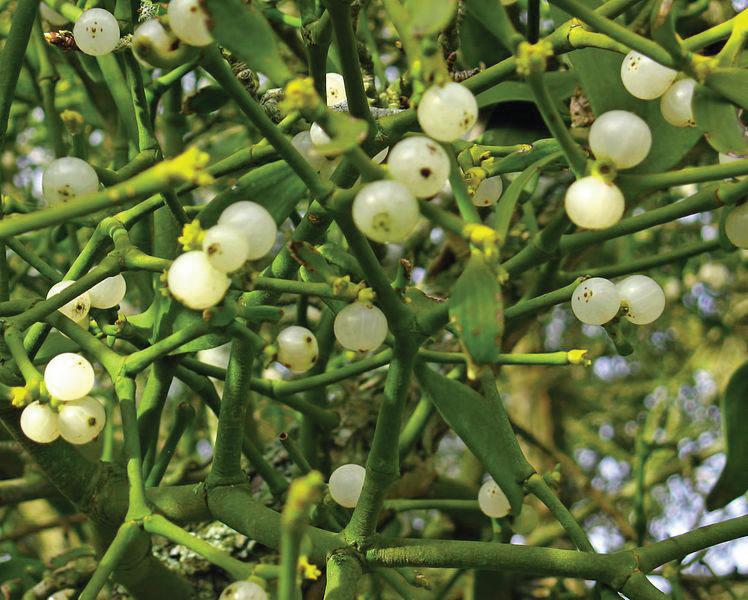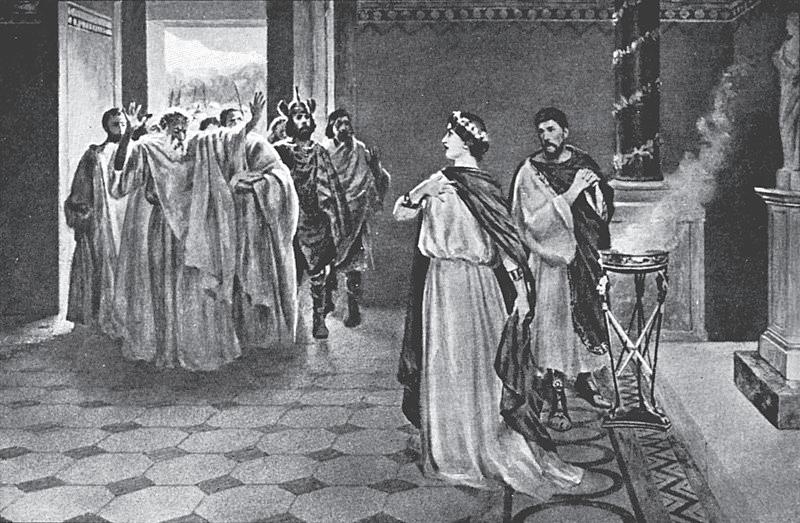
4 minute read
NORMA SYNOPSIS
STUDENT STUDY GUIDE
Norma SYNOPSIS
Advertisement
Gallic Druid uses a mallet to remove a ring on a globe inscribed “Gaul”; assisted by two Roman soldiers the Olympian gods look on from above; representing the opening of Gaul to the Roman Empire. Etching. Date unknown.
CHARACTERS
DRUIDS
Norma, soprano High-priestess of the Druidical temple of Esus
Oroveso, bass Druid chief, Norma’s father
Adalgisa, mezzo-soprano a virgin of the temple of Esus
Clotilde, soprano Norma’s maid and confidante
ROMANS
Pollione, tenor Roman Pro-consul (governor) in Gaul
Flavius, tenor Pollione’s centurion (commander)
The character of Pollione is based on the real Roman Pro-consul Gaius Asinius Pollio (75 B.C. - 4 A.D.) appointed under Emperor Julius Caesar’s rule.

Norma Act 1, Scene 3. Norma costume renderings by Costume Designer Charles Neumann for Boston Lyric Opera. 2020.

50 B.C. Gaul. The Druids wait with their chief Oroveso for the moon to rise in the sacred forest. Norma, his daughter and high priestess, is sent to gather mistletoe for a special ritual to protect them and lead them to victory against the Romans.
Nearby, the Roman proconsul Pollione, and his lieutenant, Flavio, hide among the oak trees watching the Druids. The warriors are not spying on the Druids, rather Pollione is looking for a young Druid priestess Adalgisa, a virgin of Norma’s temple. Confused, Flavio asks about Norma, Pollione’s secret lover who broke her vow of chastity and bore him two sons. Pollione explains that he does not love Norma anymore, rather Adalgisa has stolen his heart. Trumpets signal Norma’s return with the mistletoe, and Flavio urges Pollione to leave as they cannot risk being discovered.
Norma leads the ritual praying to the moon for peace. She declares that the moment is not right for war against the Romans. Her people accept her decision as she secretly fears for her lover, Pollione’s safety.
Later, as Adalgisa is praying alone in the temple over her transgression with Pollione, he quietly appears seeking her company. Adalgisa is troubled and expresses her doubts over their dangerous love affair, and her betrayal to Norma. Despite her deep hesitation, Pollione tries to persuade her to return with him to Rome. She agrees to meet him the following evening.
Upset, Norma asks her maid, Clotilde, to take her children away as she struggles with conflicting feelings about them. Adalgisa arrives to speak with Norma and confesses she has fallen in love with a Roman. As Adalgisa describes her feelings and

Image of the god Esus on a Gallo-Roman column found in Paris, 1st A.D.
pleads for forgiveness for breaking her vows of chastity, Norma remembers how she fell in love with Pollione. Norma forgives her and releases her from her commitment as priestess.
Just as Norma asks Adalgisa to describe the Roman she has fallen for, Pollione arrives and it suddenly becomes clear that both women are in love with the same man. Furious with the realization that she has been deceived, Norma condemns and banishes love-sick Pollione even as he still tries to convince Adalgisa to return to Rome with him. Meanwhile Adalgisa begs Pollione to return to Norma for the sake of the children they have together.
Still fuming, Norma contemplates murdering her children as they sleep, but cannot bring herself to destroy such innocent lives. She asks Clotilde to summon Adalgisa. Norma implores the young woman to marry Pollione and take care of her children in Rome. Adalgisa instead promises to convince Pollione to return to Norma.
Meanwhile, the Druids are restless and Norma has not yet given the signal to attack the Romans. Oroveso learns a far more severe commander will be taking Pollione’s place.
Clotilde brings news to Norma that Adalgisa’s pleas were not successful and she wishes to return to the temple. She also learns of Pollione’s plans to abduct Adalgisa that evening anyway. Norma’s fury over the betrayal erupts and she calls for war.
That night, Pollione sneaks into the cloister of novices to steal Adalgisa. He is captured and sentenced to death as the human sacrifi ce necessary to complete the war ritual. Norma is handed the sacrifi cial knife, but she cannot bring herself to kill Pollione. Stating she must question the captive fi rst, the Druids depart. Norma tries to bargain with Pollione, begging him to forget Adalgisa in exchange for his life. When he refuses, she threatens to kill their children and burn Adalgisa alive for breaking her vows.
The Druids reassemble for the war sacrifi ce. Norma proclaims that a priestess has been unfaithful and must be ritually sacrifi ced upon the pyre instead of Pollione. To everyone’s surprise, she announces not Adalgisa guilt, but her own, Norma begs Oroveso to take care of her children as she mounts the pyre. Pollione, suddenly re-enamored with Norma once again, throws himself into the fl ames after her.

English mistletoe.

Depiction of scene when Norma confesses her guilt, Norma, from Victrola Book of Opera by S.H Dudley, 1917.

Opera in Brief also gives a great illustrated synopsis of Norma.








